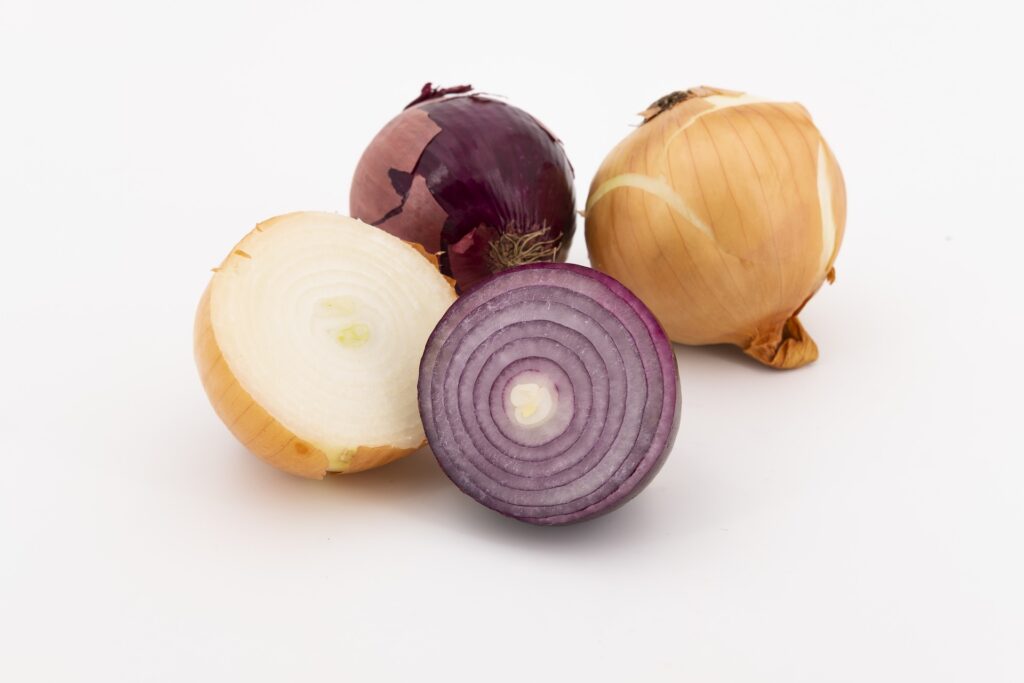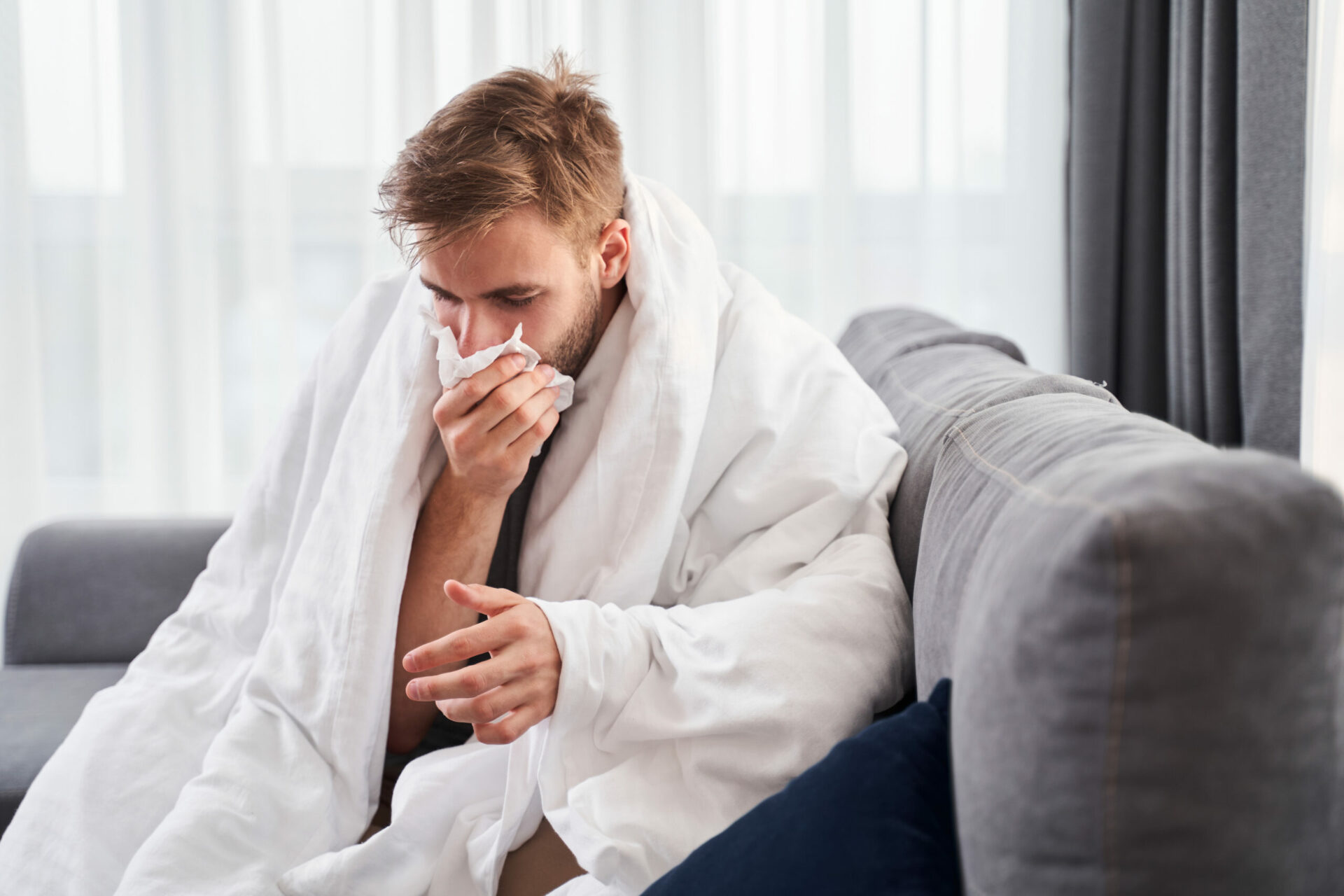The 2020/2021 flu wave is down due to the Corona virus. But in the last few weeks, everyone feels like no one is really getting better. Whether it's family, friends, work colleagues or yourself, everyone knows someone who is suffering from a cold right now and can't get rid of it properly. There are many different tips to treat a cold properly. We have compiled a few for you, so that you can fight the cold.
1. drink a lot
Especially when we have a cold, our body needs a lot of fluid. The mucus in the nose, sinuses and bronchial tubes is liquefied, making it easier to cough up and relieving nasal congestion. Lime blossom, chamomile, thyme or elderflower tea warms from the inside and is additionally soothing and anti-inflammatory for the body.
2. fresh air
If you spend the whole day at home and rest, you should always make sure that the virus-containing and stressful air is replaced with fresh air. It is important to pay attention to avoid draught when the sick person is in the room.
3. cold bath
If you are lucky enough to have a bathtub, when you have a cold, you should take a cold bath. It helps to clear the airways, the warmth has a relaxing effect and the bronchial and limb pains subside. One should make sure that one is not in the cold bath for more than 20 minutes and should not take one if one has a fever.
4. spare & rest
If you fall ill with a cold, it is important to take it easy on your body and rest it. The body works against the pathogens and consumes an extremely large amount of energy, so anyone suffering from a cold should stay at home and rest and take it easy for the entire cold. If you do not offer your body rest during a cold, there is a risk that the cold will be carried over.
5. calf compress for fever
Sleep is the best medicine for fever. However, if the fever continues to rise and is on no road to recovery, calf compresses will help to bring it down. Mix vinegar and water in equal parts and soak a kitchen towel in it. Wrap the soaked cloth around the calves and cover them with a light blanket or towel.
Development during a cold
A real cold can last up to nine days. The course of the common cold can be divided into groups of the different days. In the first two days after infection, the cold is noticeable by a scratchy throat. In addition, usually on day three Head- and aching limbs and shivering. The nose also begins to run. On days four to six is the peak phase. Here, day by day, the symptoms get worse, you are tired, groggy, and you may also get a fever. Other symptoms during the peak phase include a swollen nasal mucosa, stuffy nose, inflamed sinuses, dry irritating cough and continued aching limbs. Then, in the last two days, the cold subsides and the cough begins to clear with sputum. However, it may still be possible to suffer from a dry, irritating cough after the cold has passed.
But be careful, after a cold you can still be contagious for up to a week. Therefore, everyone should make sure that you are careful with your fellow men and contact with them.
Why is the cold always worse in the evening?
Our body has only a certain energy capacity, which we also feel through our normal everyday life. Even if we don't have a cold, we are exhausted in the evening because our energy has been used up for normal everyday life. It is similar when we have a cold. Our Immunesystem must fight all day against the pathogens of the cold and this consumes an extremely large amount of energy. The consequence of the fight against the pathogens is that our body is very exhausted in the evening and no longer has the strength to fight the pathogens. Therefore, when we suffer from a cold, we often feel worse in the evening than during the day.
4 Facts about the common cold
Did you know that...
... that the risk of catching a cold increases in October and early November?
... that rhinoviruses are the most common causes of a cold?
... that the common cold is one of the most common infectious diseases?
... already the ancient Romans suspected a connection between cold and cold?
Difference between a cold and the flu
It is very easy to confuse the common cold and the flu, especially at the beginning of the infection, but the difference is most apparent in the course and severity of the two infections.
Cold
Adults can get a cold up to three times a year, children even up to ten times a year. The frequency differs from the immune system of the affected person. Symptoms of the common cold are scratchy throat, cold feet, aching limbs and inflammation of the upper respiratory tract (cough, cold, sore throat). The cold or its symptoms usually get better after seven days and after 14 days they should normally be gone.
Flu
With the flu, also known as influenza, the signs often appear very suddenly. The symptoms of influenza are also more severe than those of a cold. Fatigue, tiredness, and headaches and aching limbs are also more pronounced. If you suffer from influenza, you also usually have a higher fever. People with a weakened immune system can also fall ill with a bacterial concomitant disease such as pneumonia or myocarditis after or during influenza. The risk of infection from influenza begins during the incubation period and can persist for up to five days after the outbreak.
Prevent cold, flu , etc.
1. hygiene
Proper hygiene in times of colds, flu and the coronavirus is enormously important to fight the viruses that lurk everywhere. The very most important thing to fight viruses is regular and balanced hand washing. Especially after shopping, refueling or using public transportation, everyone should wash their hands thoroughly with soap and warm water.
2. cough and sneeze etiquette
To prevent others from catching a cold, it is important that everyone coughs and sneezes properly. It should be noted that you always sneeze and cough into the crook of your arm, as well as you should use tissues once and also dispose of them carefully.
3. distance
In times of Corona, we are all already used to keeping a certain distance from people. Nevertheless, even in your private environment, you should make sure that you still keep a certain distance from people who are ill or who have been ill.
4. fresh air
Especially in offices or classrooms, you should always ventilate during the flu and cold season. The stale air is full of viruses and should be regularly replaced with new and fresh air.
5. right food
Everyone knows that nutrition plays an important role in our immune system. Therefore, especially in a time when you may already feel slightly battered, you should make sure to eat plenty of fruits and vegetables.
Insider tip onion
Did you know that the Onion can be much more than just a vegetable? Almost all of us use daily in our meals, but few of us know that the onion can be even more than just a vegetable. Use the power of the onion and do something against your cough.
Recipe for an onion juice

- Peel and slice one large onion
- Add 2 tablespoons of honey and a little sugar to the onions
- Leave the onions covered for several hours or overnight (stirring occasionally).
- Drain the resulting juice and store in the refrigerator
- Take one tablespoon of onion juice three times a day for your cough







